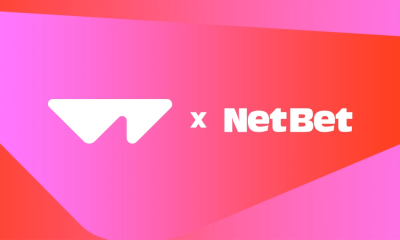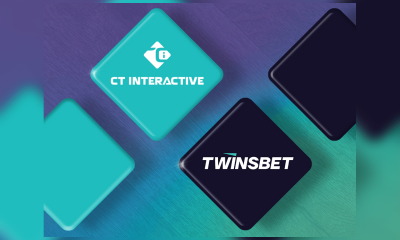Interviews
Exclusive Q&A with Sujit Unni, Chief Technology Officer at Paysafe

How important are payment methods and speed of payment processing important for customer experience in online sports betting?
We talked with Sujit Unni, Chief Technology Officer at Paysafe, which had conducted a survey among US punters. He provided insightful and detailed answers on this and several other questions.
Read on for some fascinating perspectives on the past, present and future of the payment process and its role in online sports betting.
Q. Let’s start with the recent survey that Paysafe conducted among US sports bettors. What are the key takeaways from the survey?
A. Here are some of the conclusions we came to after surveying sports bettors in eight regulated US states:
Available payment methods influence players’ decision to use a brand: To fully capitalize on the growing opportunity of online sports betting, sportsbook operators should strongly focus on the player experience at the checkout. The payment methods that are available and the security of said methods are critical for players when it comes to evaluating which brand they choose to place their bets with.
Transaction security factors highly into choice of sportsbook: When asked to identify which criterion was most important when depositing funds with a sports-betting brand, bettors said the security of the transaction was more important than any other characteristic.
Easy and fast payments are critical: Just as important to players is the speed and ease with which they receive their winnings when they wish to cash out. According to four fifths (79%) of US sports bettors we surveyed, they have a negative impression of the sportsbook when their expectations related to cash out speeds aren’t met. This can result in the sportsbook taking a large reputation hit. A poor reputation spreads among players and can result in a significant brake on its growth.
The online sportsbooks themselves must be fast and efficient: It’s important to make sure the sportsbook’s payment platform is moving quickly and efficiently. The easier it is for a player to access payouts, the more likely they will be to continue using the platform. Those who adapt to these demands will position themselves well for significant growth.
Q. Everybody talks about the speed of payments. How does speed factor into the mobile process as a whole, and how does it contribute to the overall success of an online business, especially an iGaming business?
A. iGaming is changing more rapidly right now than ever before. Mobile’s role in this evolution is huge, given apps’ potential for speed and the strong relationship we’re able to build with end-users: We’re right there, in their pockets, whenever they pick up their phone.
But proximity alone is not enough. End-users will grow bored or burnt out if their experiences are slow, or if we’re not constantly offering new experiences and improving what’s already available.
Increasing the speed of our processes and the user experience is critical in that every second of load time anywhere within the app literally costs every company money, especially in iGaming, which is less of a considered purchase than traditional mobile shopping or eCommerce. iGaming customers are making fluid, real-time decisions; the more time they have to wait to get to the next step, the less patient they become and the more likely they are to drop off.
Speed is a function of many factors, and there are a number of processes that power the payments experience. We work with mobile DevOps platform Bitrise to increase the speed of all of the mobile processes that power the user experiences leading up to and including payments, as well as the behind-the-scenes operational processes that influence our ability to release updates to the app stores more frequently and faster.
The payments part of the mobile process is a particularly expensive place to be slow. Out-pacing competitors in that process is what’s creating the winners in this space.
Q. What are the ways by which Paysafe tries to accelerate its mobile processes and e-payments?
A. If you look at it from a very high level, the two primary ways we accelerate our processes and e-payments are through having the best talent and technology.
We stay competitive on the talent side by attracting and – just as importantly –
retaining the best people in the world in this space. We have been able to build on their expertise to constantly improve the speed at which we deliver value for merchants and consumers alike.
When you are investing in this level of talent, it’s important that you are not wasting their skills on things like troubleshooting, waiting around hours to test builds, or doing manual fixes to problems that could be automated. So, on the technology side, our mobile engineering teams use Bitrise to test all new code, reduce build times from hours to minutes, identify issues that might interfere with the user experience, and so on, before submitting releases to the app stores.
Our goal is to always do everything as fast as possible, without sacrificing our standards of quality and security.
Q. It looks like the ‘slow and steady’ will not win the races anymore. But could the focus on speed–especially in payment processing–be detrimental to the fraud-prevention measures?
A. Building on my last answer, it’s imperative to not sacrifice security to save time. I will say that one of the upsides of investing in technology like Bitrise is that it allows us to get the best of both worlds: Speed and security. In our mobile engineering processes, for example, Bitrise allows us to automatically run a number of security tests and checks that were previously slow, manual labour. Now they take up less time, are more consistently executed, and actually free up the team to work on innovations for our merchants and consumers. That’s not to say that there aren’t manual checks involved anymore, but those are fewer and more meaningful.
Q. Could you talk about the recent innovations that Paysafe brought to the payments ecosystem?
A. Given the nature of our business we are constantly evolving our value proposition and anchor around our philosophy of customer outcomes. We tend to think of innovation around key pillars including:
- Evolving our business to be a true cloud-based platform that supports multi-sided markets. This allows existing customers and merchants to access new features and stay engaged with our platform. The recent introduction of Openbucks, a product that allows store gift cards to be used at point of sale at other merchants in the Paysafe network, benefits customers who can now use restricted gift cards across a wider merchant base, and allows our merchants to accept a non-traditional payment method.
- Building out hybrid-business models with the wider finance eco-system through the launch of capabilities like pop-up banking with traditional banks like TSB. While serving as a revenue stream, this also allows banks like TSB to optimize their branch footprint and enables customers to access simple transactions using the Paysafe network.
We have also spearheaded a suite of embedded finance offerings with partners like Amazon and Google. Our offerings of cash to digital, digital wallets and processor agnostic payment methods makes us one of the few firms that can offer industry specific open loop and closed loop solutions.
Q. Allow me now to bring a customer perspective. What benefits do companies, especially those in the iGaming sector, gain from integrating the accelerated payment solutions of Paysafe?
A. Given our “born in gaming” origins, we believe we are one of the few payment platforms in the market that has a full suite of solutions to support both store based and online operators. This means our combination of brick and mortar, wallet, and cash solutions allow customers to seamlessly transact and play across the in-store and online offerings of our gaming merchants.
Solutions like our single integration API give our gaming merchants access to payment processing platforms that are accessible in multiple geographies through different processors, a host of local payment methods and a global network of banks. This in effect improves the customer experience and reduces revenue losses from declined transactions.
Effective risk and fraud management is a key differentiator, given the deep expertise and geographical coverage we provide the industry. Our investment in our risk and fraud infrastructure protects both merchants and customers while ensuring a seamless payments experience.
Q. The new technologies in the payment space have blurred the boundaries of national currencies to an extent. What are your thoughts on the influence of the laws and regulations of different countries on the growth of payment processes, especially for a highly regulated industry like iGaming?
A. The world is definitely a smaller place from a payments perspective today than it was five or six years back, largely enabled by the rapid adoption of disruptive technologies like blockchain, API driven ecosystems, and standardization of messaging services.
Like any financial service, payments are heavily influenced by regulation – and fortunately in a good way for the most part. Governments have been quick at recognizing how critical a scalable and democratized payments infrastructure is to drive economic growth and, as a result, we see regulation being enacted in in many markets. This is helping build out global payment ecosystems – for instance, UPI in India, Open Banking in Europe, or FedNow in the US. As this ecosystem continues to evolve, we see the emergence of trends like pay by bank and local payment methods continuing to grab market share from the card schemes, which will benefit both consumers and merchants.
iGaming is still in its infancy and, in certain markets like the US, can ride this wave of an open payments ecosystem to provide a far superior experience to its customers. Regulation in gaming is still evolving and it will look to more mature markets in Europe for insight as it starts to put in place legislation for the industry. Paysafe is leveraging its established presence in the EU to bring insight and product offerings to the US market that allow our gaming partners to not only grow their business in line with established legislation but also to build and offer products that consider future legislation that we think could be enacted.
Q. What is your take on the growth of mobile payments over the last few years?
A. Smartphones are a part of our daily lives today and are to a large degree considered indispensable. In the few years leading up to the pandemic, we were already seeing steady growth in mobile payments. The onset of the pandemic accelerated that growth by as much as 75% in some segments.
Some of the key drivers are:
The influence of digital transformation: As industry sectors, particularly financial services, have increasingly been disrupted and transformed, the mobile phone has emerged as an important customer engagement channel. As customer behavior matured to using mobile phones as a transaction medium, the need to support payments drove adoption.
The rise of emerging digital economies: The other big influence was the rise of emerging economies. India, for example, had a head start in becoming a digital economy with its population armed with mobile phones before they even had access to desktop computers. Countries like India that are supported by digital friendly government regulations, have a large unbanked population and an industry that’s very willing to provide payment and banking solutions, witnessed exponential growth in mobile payments.
Apps, wallets, and subscription services: As the number of apps hosted on Apple and Android platforms grew, people are increasingly using mobile phones to purchase a range of services, from buying tickets to ordering rides and subscription services. This adoption led to the creation of a full payment supportive ecosystem, including wallets (Apple Pay, Google Pay, and our own Skrill digital wallet, among others) and emerging payments volumes driven by a growing library of subscription services.
Payments continue to become easy and reliable: Having a credit or a debit card used to be the only way to make a payment on a mobile phone. However, payments have evolved to keep up with the emerging digital landscape. Today beyond these traditional payment methods, customers can pay with their bank accounts, cash, and by using over 200 local payment methods specific to geographies –which has democratized payments. That coupled with regulation to promote open banking systems and reliable real-time payments as well as faster payment infrastructure has helped drive the surge of mobile payments.
Increasingly secure and safe transactions: Wherever there is a financial transaction there is also the risk of fraud. Because of this, mobile phones have evolved to continually make transactions both convenient and safe. Whether it’s by using face ID, biometrics or contactless payments, the ability of the manufacturers to deliver secure payments was critical in driving the wider adoption of mobile payments.
Q. Let’s conclude with something about the future. Could you reveal some of the changes that you foresee coming in the mobile space? What about the payments sector?
A. With app store operators seeing pressure from governments around the world to loosen their grips on the mobile ecosystem – especially in terms of payments – we expect to see some massive changes soon.
Alternative app stores that allow more app choices for end-users and more payment processing choices for app store publishers are benefitting both merchants and consumers.
Additionally, we expect the consumer’s need for speed to increase even further, widening the divide between those businesses that can deliver on this expectation and those that can’t.
We’re confident that, between the talent of our team and partners like Bitrise, we’ll land on the right side of that divide.
Powered by WPeMatico
Interviews
Changing the game for content aggregation
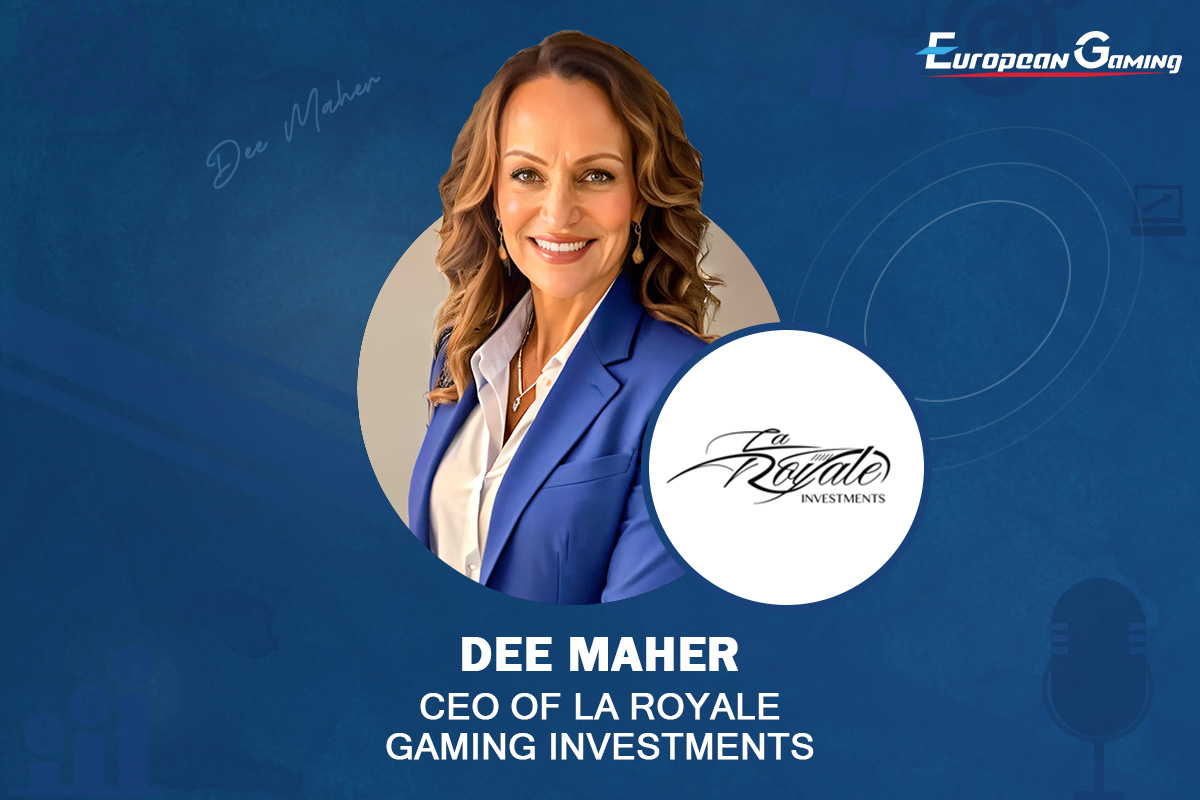
We sit down with Dee Maher, CEO of La Royale Gaming Investments, to learn more about her recent appointment as CEO and how the company is set to challenge the gaming industry’s conventions.
La Royale Gaming Investments has bold plans to become a true power player and redefine industry standards. Through acquisitions and mergers, it intends to build an “ecosystem” of online and offline companies, covering both B2B and B2C. Its first play is Quanta, a unique content aggregation platform designed to leverage a high volume with a focus on delivering unparalleled value at a fair price, aiming to introduce innovative solutions for both operators and suppliers. To learn more about La Royale and its goals for the coming 12 months, we spoke with recently appointed CEO, Dee Maher.
Tell us more about your journey to being appointed as CEO of La Royale Gaming Investments.
I’ve been working in the global online gambling industry for many years now in roles covering legal and compliance leadership. Over the past 15 years, I have had the privilege to work for some of the biggest organisations in the business including the likes of Genesis Global, Betclic, Vera&John and Evolution Gaming. When I was approached about joining La Royale Gaming Investments as CEO, it was an offer that I couldn’t turn down. Recognising the company’s ambition to forge a transformative path in the gaming sector, I was compelled by the vision to lead change and drive innovation. My decision to accept was driven by a profound commitment to spearhead our mission, leveraging the remarkable talents of our team to redefine industry standards and make a lasting impact.
What are your main responsibilities and where are you looking to progress most?
I have been tasked with supervising the expansion of our investment portfolio by recognising opportunities that are aligned with our online and offline strategies. I am also overseeing the day-to-day running of Quanta, our inaugural venture, which stands out in the crowded marketplace as a game aggregation platform like no other. In terms of where we are looking to make the most progress, we plan to curate a unique ecosystem of innovative offline and online gaming companies through strategic mergers and acquisitions which combined will make La Royale Gaming Investments a real tour-de-force in the sector and one of the top tier companies with interests across both B2B and B2C.
How is La Royale Gaming Investments going to disrupt the industry? Is it taking a different approach?
La Royale Gaming Investments is poised to redefine the gaming industry with a strategy rooted in bold vision and innovation. We have built out the best team to deploy these ambitious plans and achieve our strategic goals. We are well-capitalised and have lined up our first run of acquisitions, starting with Quanta. Our approach focuses on identifying USPs within each business we engage, introducing ground-breaking offerings to the market. With Quanta, that is being the first mass-market game aggregation platform, creating value for both operators and suppliers. This is an industry where many follow the same blueprint, but we know that to pull distance from our competitors, we need to do things a little differently.
I think our biggest point of difference is that we are curating an ecosystem of innovative businesses across all areas of gambling and gaming. This includes both online and offline, and both B2B and B2C. There are not many organisations in the industry that are this broad and diverse so again this is an area where we can really stand out.
You mentioned that Quanta is the first mass-market game aggregation platform. What does it offer operators and suppliers and how is it different to other solutions in the market?
Quanta has been developed so that it can handle the largest possible volume of games from a diverse array of providers and seamlessly integrate with a vast network of operators. Due to this volume, we can offer the best commercial deals to both parties. Our scale, in collaboration with leading studios and casinos, positions us as a frontrunner in content distribution. Furthermore, we are committed to achieving certifications across all significant regulated markets. For operators, this means they can quickly and easily add games to their lobbies and for studios, it means access to the widest distribution network and thanks to our minimum reseller fee structure, we make this access available to all providers from the established titans to the rising stars.
But just to be clear, Quanta transcends the ordinary, offering not just a cost-effective solution but a sophisticated high-performance platform. The platform is state of the art, allowing for seamless integrations for both operators and suppliers while ensuring the highest standards of resilience and performance. The concept is simple – high volume, low cost – but the advanced technology and strategic foresight required to realise this vision set us apart from conventional solutions in the market.
Content provision is highly competitive so what makes you confident that Quanta will be heard above the noise being made by other providers and aggregators?
Our mass market approach is unique and is already helping us to stand out and generate significant interest from both studios and operators. In the current challenging economic landscape, efficiency and cost-effectiveness are paramount for all stakeholders. But our advantageous commission structure is not the only way we are helping here. At present, operators often have many integrations with various aggregators and directly with game providers. This is inefficient and expensive. With Quanta, operators can plug into a single platform and access all the content they need for each market they target allowing them to save significant resources or to deploy these resources elsewhere.
On the subject of the current economic climate. Is now a good time to be building a business based around M&A?
That depends on how you are approaching your M&A activity and whether an organisation is taking on debt. Timing can be crucial here – you just have to look at the likes of 888 to see how a change in the direction of the wind can have a brutal impact on the wider organisation. That said, there are always plenty of opportunities to acquire great businesses, technologies, solutions and so on, and part of my remit as CEO is to spot these and if they align with our wider approach, make a move. I think the 12 months ahead will be incredibly exciting when it comes to M&A, with some truly transformational deals taking place – something that La Royale Gaming Investments intends to be a part of.
The post Changing the game for content aggregation appeared first on European Gaming Industry News.
Interviews
The Full Spectrum Strategy: How Betting on Both Popular and Lesser-Known Sports Pays Off
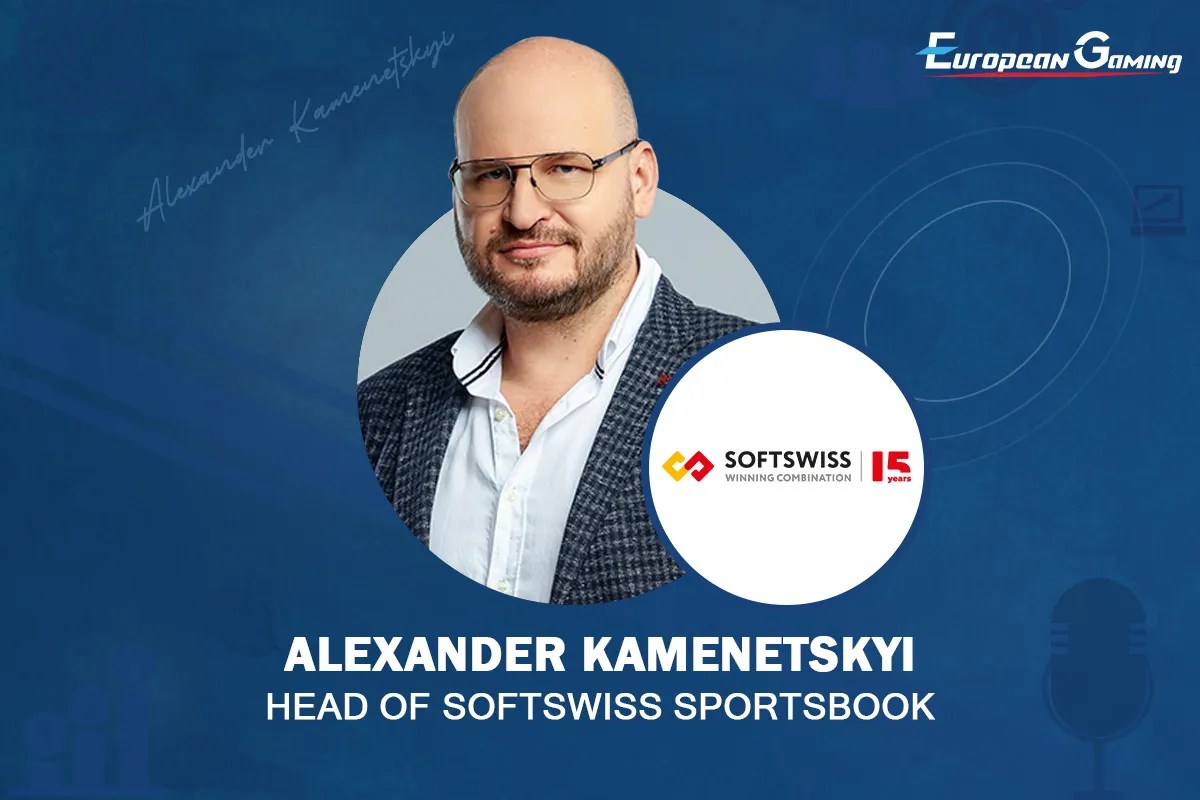
In an insightful interview with Alexander Kamenetskyi, Head of SOFTSWISS Sportsbook, we delve into the complex balance between promoting mainstream sports events and exploring niche markets in the betting world. This strategy enhances profitability and ensures a steady engagement across diverse betting markets, crucial for maintaining a dynamic and resilient business model in the competitive world of sports betting.
How should operators balance promoting popular sports events versus niche ones?
The effective strategy in betting is to diversify wagers across a broad range of sports events and markets. This approach helps minimise fluctuations in outcomes, enhancing both the profitability and predictability of your betting business.
Based on this, we recommend that operators promote all sports comprehensively to maintain steady activity and turnover. This ensures that players remain engaged with alternative options, even during periods lacking major events.
It’s crucial not only to focus on popular events like top football matches or major NBA tournaments but also to spotlight less mainstream sports such as water polo, badminton, and Formula 1. For instance, Australian football is notably underappreciated despite offering unique scheduling advantages that can be leveraged during off-peak times to attract bets.
How can you choose sports that have the best chance of attracting your audience?
To effectively capture your audience’s attention, it’s crucial to identify alternative events during periods when popular events like the Champions League are not happening. Our strategy involves actively promoting these alternatives to familiarise players with new tournaments and sports.
We have two dedicated teams: one that selects potential events and advises operators on what to highlight, while the other crafts promotional campaigns to ensure these events resonate with your audience.
The primary factors we consider when selecting events are Total Bets and the number of bets placed on a specific event or tournament. Popularity is our second criterion, which we measure by comparing the turnover to the number of participating players.
For instance, if there are no football championships over a weekend due to Euro qualifying matches, we might suggest promoting NBA evening games or volleyball tournaments to fill the gap left by high-profile football events.
However, it’s also beneficial to occasionally promote sports other than football, even when popular football matches are available. This strategy helps diversify the betting habits of the audience, which is vital for maintaining a stable and engaging product.
How far in advance do you need to start working on a promotional campaign?
We typically share promotional materials with operators two weeks prior to the event. This timeframe usually provides ample opportunity for operators to finalise the text and graphics. If we opt to use bonuses as the main promotional tool, we generate the rules, bonuses, and banners automatically. It’s then up to the operator to create and either self-publish the content or do so with our assistance.
What promotional channels would you recommend focusing on?
Operators have a variety of tools at their disposal, from email and SMS campaigns to managing their own channels on Telegram and other messaging platforms where they can share updates, offer bonuses, and more. Many even offer additional bonuses for subscribers of these communities, which proves effective in building a targeted and loyal audience interested in your project’s bonuses.
Another effective strategy involves placing promotional banners on various sections of the operator’s website, such as the homepage, event pages, and user dashboards. Additionally, collaborating with influencers like streamers can significantly boost traffic.
It’s also crucial not to overlook the power of email newsletters. When crafting content for these, it’s important to consider user behaviour and device preferences. For instance, with over 90% of our current revenue coming from mobile devices, it’s safe to assume most emails will be opened on a smartphone. Thus, optimising for mobile viewing is key. Our tests show that simple, structured, and transparent offers tend to perform best – you only have a few seconds to capture the player’s attention and persuade them to click through.
Do promotions without financial incentives like bonuses still work?
Let’s be clear: bonuses and promotions are fundamental to attracting players, especially those who rely on luck to multiply their capital. Seen as lucky breaks, bonuses allow participation without direct cost. Properly integrated into the marketing strategy, these incentives not only maintain player interest but significantly enhance financial performance.
For example, if an operator earns 15% from express bets, they can afford to redistribute 5% of that as bonuses, slightly reducing their margin to 10%, but potentially increasing user engagement and solving other operational issues.
Furthermore, promotions enable operators to direct betting activity efficiently. While major events naturally draw attention, incorporating bonuses for lesser-known events like the World Curling Championship can broaden a player’s interest and betting activities, introducing them to new sports and betting markets. This strategy not only diversifies the player’s experience but also stabilises the operator’s financials by spreading funds across various sports, thereby reducing the impact of financial peaks and troughs during major events.
Some operators focus primarily on significant events, leading to considerable financial volatility. For example, many faced challenges during the European Football Championship qualification matches when favourites won, negatively impacting financial outcomes. Operators that engage their audience across a spectrum of events tend to experience more stable performance.
Ultimately, using high-profile events to attract new players while promoting a diverse range of smaller events can create a more robust and diversified betting environment. This approach mitigates risks and cultivates a more engaged and knowledgeable betting community.
How likely is it that a person who came to a particular event will continue engaging with you afterwards? What influence can an operator have during this time?
Welcome packages with various bonuses are highly effective in this scenario. The primary goal is to familiarise new players with the range of bonuses and sports offered. Ideally, the entrance bonus program should provide about 20-30% to engage the player effectively.
Besides the welcome package, we can implement trigger-based rules during major events. For instance, a new player might come for the World Cup, and we could offer a promotion like: “Win three World Cup bets and receive a free bet for Wimbledon.”
Once engaged, they might notice a dominant player like Djokovic and place a bet on tennis, triggering another promotion. For example, we could offer a 50% bonus for making an express bet with specific odds on three tennis events. This showcases our diverse bonus system and introduces new sports gradually.
Furthermore, promoting sports tends to be easier than casinos because there are more events and thus more opportunities to engage players through channels like email newsletters, with less risk of being flagged for spam.
We advise our operators to customise bonuses for specific player demographics – like promoting Brazilian tennis players to Brazilian users or Nigerian athletes to Nigerian users. This targeted approach is significantly more effective than generic offers and resonates even with experienced casino players.
However, it’s crucial for operators to view their offerings holistically; they don’t just have a casino or sports section, but a comprehensive project where every part should function seamlessly together, including promotions and the product’s internal functionality.
The post The Full Spectrum Strategy: How Betting on Both Popular and Lesser-Known Sports Pays Off appeared first on European Gaming Industry News.
Interviews
Tom Galanis: giving a First Look at the Top of the Slots
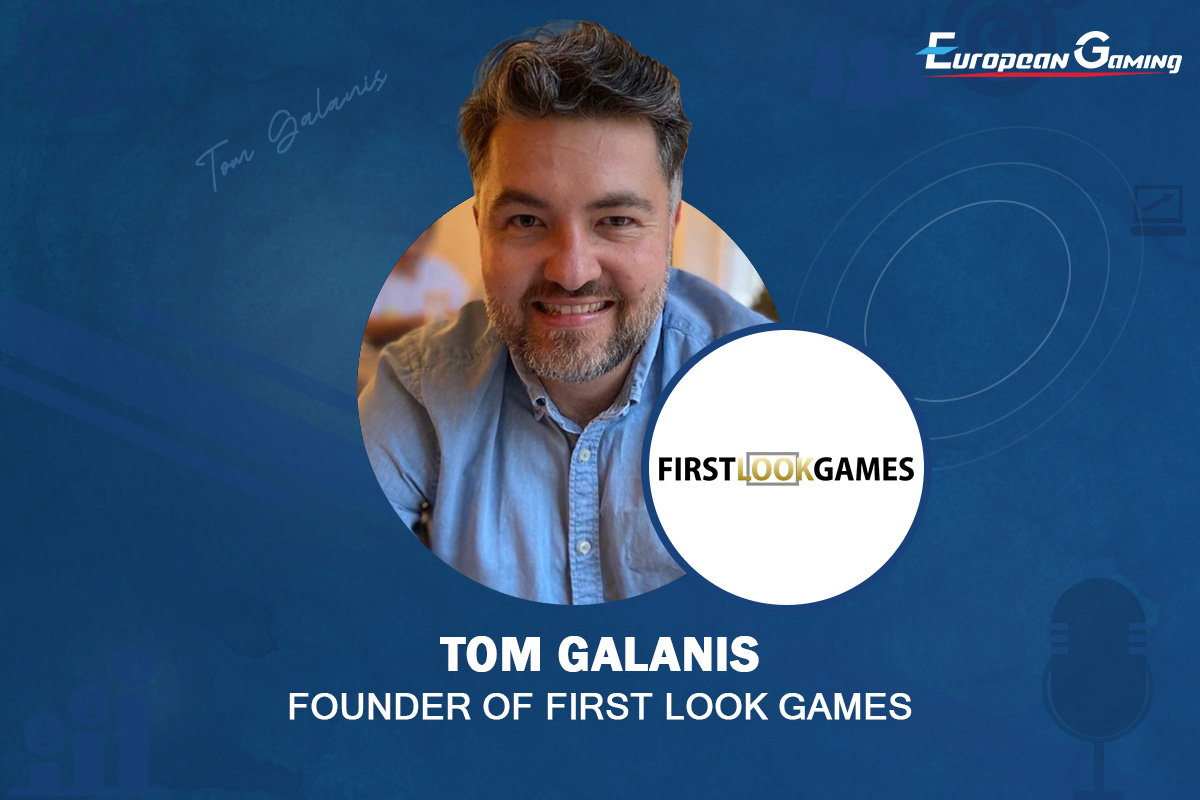
Gone are the days when we would spend a Thursday evening waiting for Top of the Pops to come on our televisions so that we could see who would be performing that week. The music show may no longer be running, but First Look Games has taken inspiration from the long-running staple and added a slot spin, to create Top of the Slots.
To give us more insight, First Look Games Founder Tom Galanis walks us through the ideation process behind Top of the Slots and how this is helping to give an accurate representation of the top-performing slot titles each month.
You launched Top of the Slots by First Look Games a couple of weeks ago. For those that may have missed the launch, what does this involve?
Tom Galanis: Top of the Slots is a showcase for the top 10 games launched by game studios via the First Look Games platform over the previous 90 days. It’s a never-before-seen take on game popularity and one our game studio partners, and affiliate users are already loving!
What was the thought process behind launching Top of the Slots?
Tom Galanis: First Look Games captures unique data for our game studio partners and Top of the Slots is designed to illustrate the most successful games, benchmarked by this unique data insight, to the industry.
What do game providers have to do to make it into the top ten releases for the month? What metrics do you use to evaluate success?
Tom Galanis: In order to make it in to the top 10, game studios need to release titles via our platform that successfully resonate with the 850+ affiliates that utilise First Look Games, making full use of the suite of tools we offer on and outside of the platform to engage affiliate marketers in the promotion of their game. The rankings are based on the First Look Games Index for all games launched to the market in the preceding 90 days, which combines:
- a) Downloads – which is the aggregated total of download sessions amongst affiliates on the platform. Affiliates download assets including logos, game sheets, video files, screenshots, banners and game artwork;
- b) Hits – this is the aggregated total number of game reviews for the game, created by affiliates using the First Look Games platform;
- c) Reach – this is the aggregated unique visitor count of the websites containing the Hits;
- d) Demo Game Sessions – this is the number of free to play demo game sessions that have taken place from iFrames placed on Hits.
- e) Sentiment Score – this is the average sentiment score from Hits
The games that rank well in this index are obviously commercially successful in their own right but are also being reviewed by affiliates because of the engagement of the game studio with the First Look Games platform, and consequently, with affiliates.
Our most active game studios are not just releasing great games with frequency but are also ensuring their game and studio news is distributed across the First Look Games platform and social channels and that a full and diverse range of marketing assets and game information is being provided through the platform prior to a game’s release. This best equips affiliates to understand the features of a game so that they can successfully convey this to their player audience, which, collectively amongst FLG affiliates, is very significant, totalling more than 20 million slots players worldwide.
Tell us a bit more about the First Look Games sentiment analysis – how is this helping to remove the biases from the ranking process? What data do you use to inform this analysis?
Tom Galanis: Once our technology has identified a new game review, First Look Games uses Natural Language Processing to ‘read’ the review and assess what the affiliate makes of the game. We share a short snapshot of this with the game studio and assign a score to the review based on how positive the affiliate has been in their review of the game. The more positive the language used in the review, the higher the score.
Sentiment scores are then aggregated across all reviews of the game to give a score for the game, and across all games to give the studio a score to benchmark against peers. Using AI, we are able to objectify the subjective to provide true 360 analysis on how affiliates are promoting a game.
What can we expect to see from First Look Games for the remainder of this year?
Tom Galanis: We have a perpetual roadmap of both new studio launches and technical advancements of the platform for affiliates and game studios to look forward to!
The post Tom Galanis: giving a First Look at the Top of the Slots appeared first on European Gaming Industry News.
-

 Asia6 days ago
Asia6 days agoIndonesian Govt to Form Task Force to Tackle Online Gambling
-

 Latest News6 days ago
Latest News6 days agoNetBet Casino Joins Forces with Stakelogic
-

 Brazil6 days ago
Brazil6 days agoKiron Interactive expands Brazilian presence with EstrelaBet partnership
-

 Latest News6 days ago
Latest News6 days agoNetBet Denmark joins forces with Wazdan
-

 Baltics6 days ago
Baltics6 days agoCT Interactive has concluded a key deal with Twinsbet.lt
-

 Endorphina Press Releases6 days ago
Endorphina Press Releases6 days agoEndorphina releases its newest title – Jolly Queen!
-

 Bryan deLugo5 days ago
Bryan deLugo5 days agoSacramento Kings and Red Hawk Resort + Casino to Unveil Themed $1 Slots
-

 Balkans5 days ago
Balkans5 days agoWazdan marks Croatian market entry with PSK partnership











